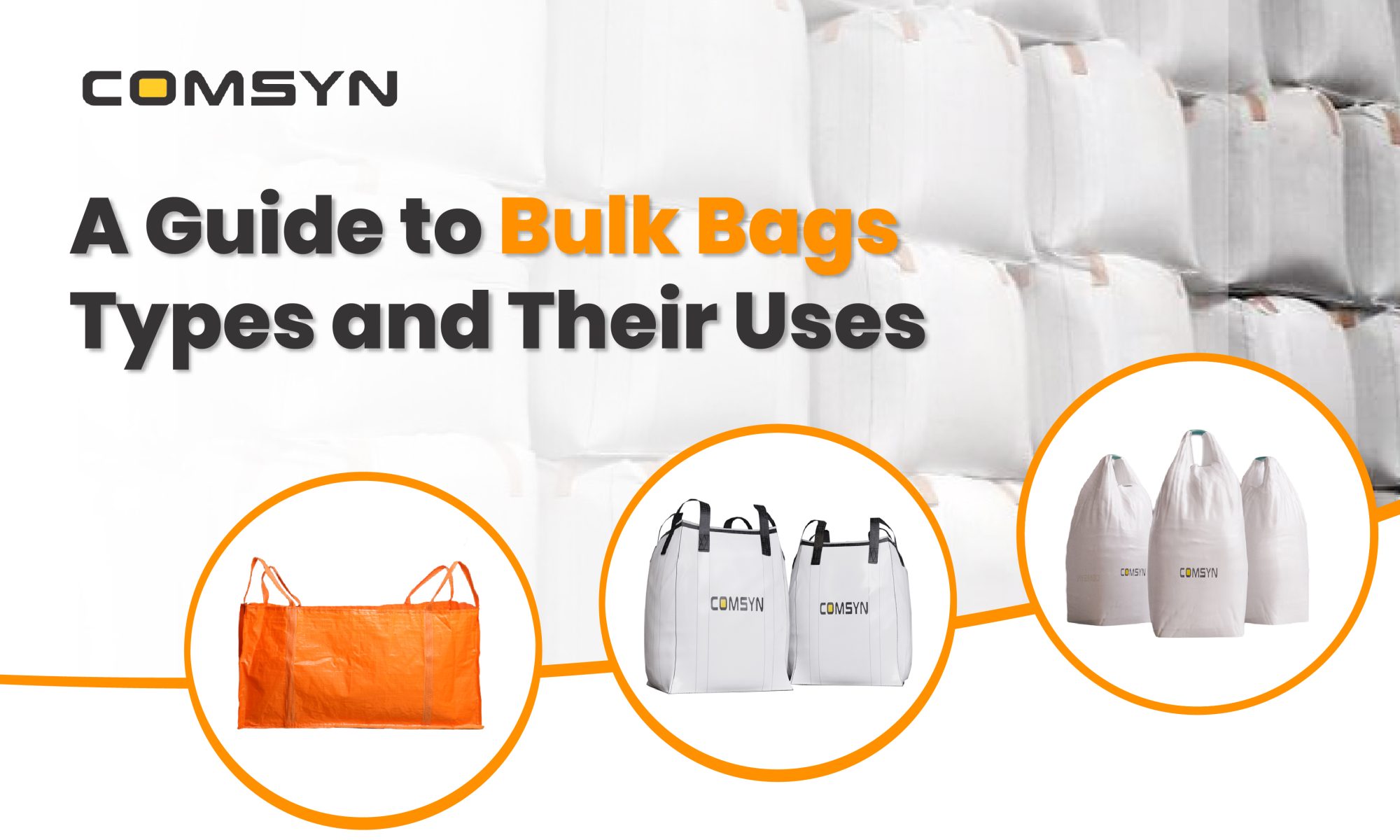In the realm of bulk handling solutions, bulk bags, also known as FIBCs (Flexible Intermediate Bulk Containers), stand out as versatile and efficient options. These large bags come in various types, each tailored to specific applications across industries. Understanding their types and uses is crucial for optimizing their benefits in your operations. Bulk bags are large, flexible containers typically made from woven polypropylene fabric. They are designed to transport and store bulk materials safely and efficiently. Their flexibility, durability, and cost-effectiveness make them indispensable across a wide range of industries, including agriculture, construction, chemicals, food processing, and more. Standard FIBCs are the most common type of bulk bags. They come in various sizes and configurations, with options for different lifting mechanisms (such as corner loops or cross-corner loops) and discharge options (like spouts or open tops). Standard FIBCs are suitable for a wide range of dry bulk materials, including grains, seeds, minerals, and chemicals. Conductive FIBCs are specially designed to prevent the buildup of static electricity, making them ideal for handling flammable materials or products sensitive to electrostatic discharge (ESD). These bags incorporate conductive threads or elements into their fabric to dissipate static charges safely. Type C FIBCs, also known as antistatic FIBCs, protect against static electricity by grounding the bag through a designated grounding point. They are suitable for environments where flammable gases, vapors, or combustible dust are present, reducing the risk of fire or explosion. Type B FIBCs are made from non-conductive materials and do not offer protection against static electricity. They are suitable for transporting non-flammable materials that do not generate static charges during filling or discharge processes. Food-grade FIBCs are manufactured with materials that comply with food safety regulations. They feature clean, hygienic designs with smooth surfaces to prevent contamination and ensure the safe handling of food products such as grains, powders, and other ingredients. Bulk bags are commonly used in agriculture for storing and transporting bulk quantities of crops, seeds, fertilizers, and animal feed. Their large capacity and durability make them ideal for handling agricultural products efficiently. In the construction industry, bulk bags are utilized for transporting and storing materials like sand, gravel, cement, and aggregates. They offer a convenient and cost-effective solution for handling bulk construction materials on-site. Chemical manufacturers and distributors rely on bulk bags to transport a wide range of powders, granules, and hazardous chemicals safely. Specialized types such as conductive and antistatic FIBCs provide added protection against static electricity and contamination. Food-grade FIBCs play a crucial role in the food processing industry, where hygiene and product safety are paramount. These bags are used for storing and transporting ingredients, spices, grains, and other food products in compliance with regulatory standards. Bulk bags offer a versatile and efficient solution for handling bulk materials across various industries. By understanding the different types of bulk bags and their specific uses, businesses can optimize their operations, improve safety, and enhance productivity. Looking for high-quality bulk bags for your industrial needs? Visit Comsyn today and explore their wide range of FIBC solutions tailored to your requirements.A Guide to Bulk Bags Types and Their Uses

Understanding Bulk Bags
Types of Bulk Bags
Standard FIBC
Conductive FIBC
Type C (Antistatic) FIBC
Type B (Non-Conductive) FIBC
Food Grade FIBC
Uses of Bulk Bags
Agriculture
Construction
Chemicals
Food Processing
Conclusion
- About Us
- Products
- Markets Served
-
- Investor Relation
- Board Of Directors
- Committees Of Board
- Corporate Governance
- Financials
- Annual Report
- Key Managerial Positions
- Shareholding Pattern
- Notices
- Policies Programme
- Announcements
- Statement of Investor Complaints
- Unpaid & Unclaimed Dividend
- Prospectus
- Investors Contact
- Subsidiary Financials
- IEPF
- Preferential Issue – 2024
- MOA & AOA
- Integrated Filing
- Sustainability
- Contact Us
- TechTex
- Brochure

